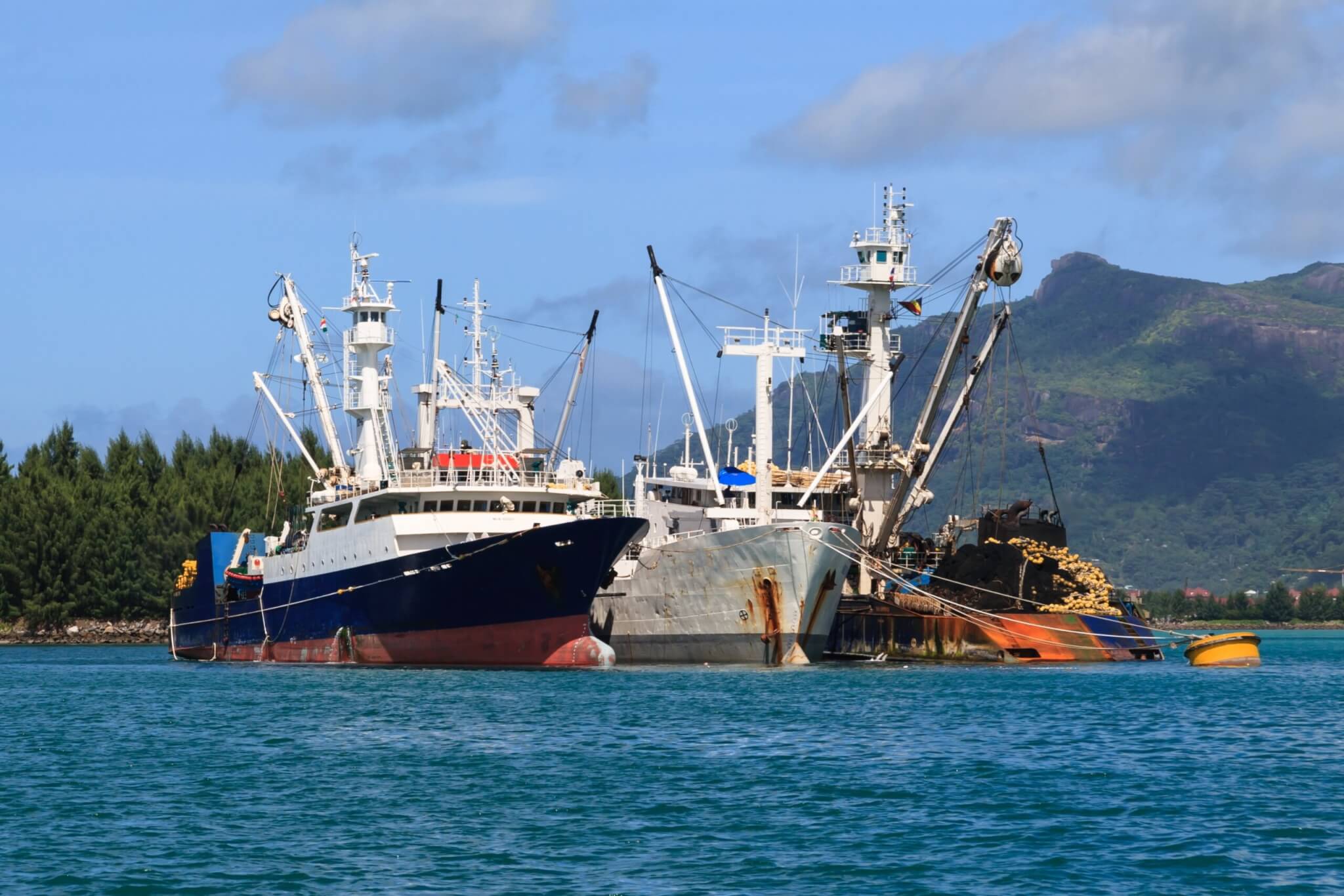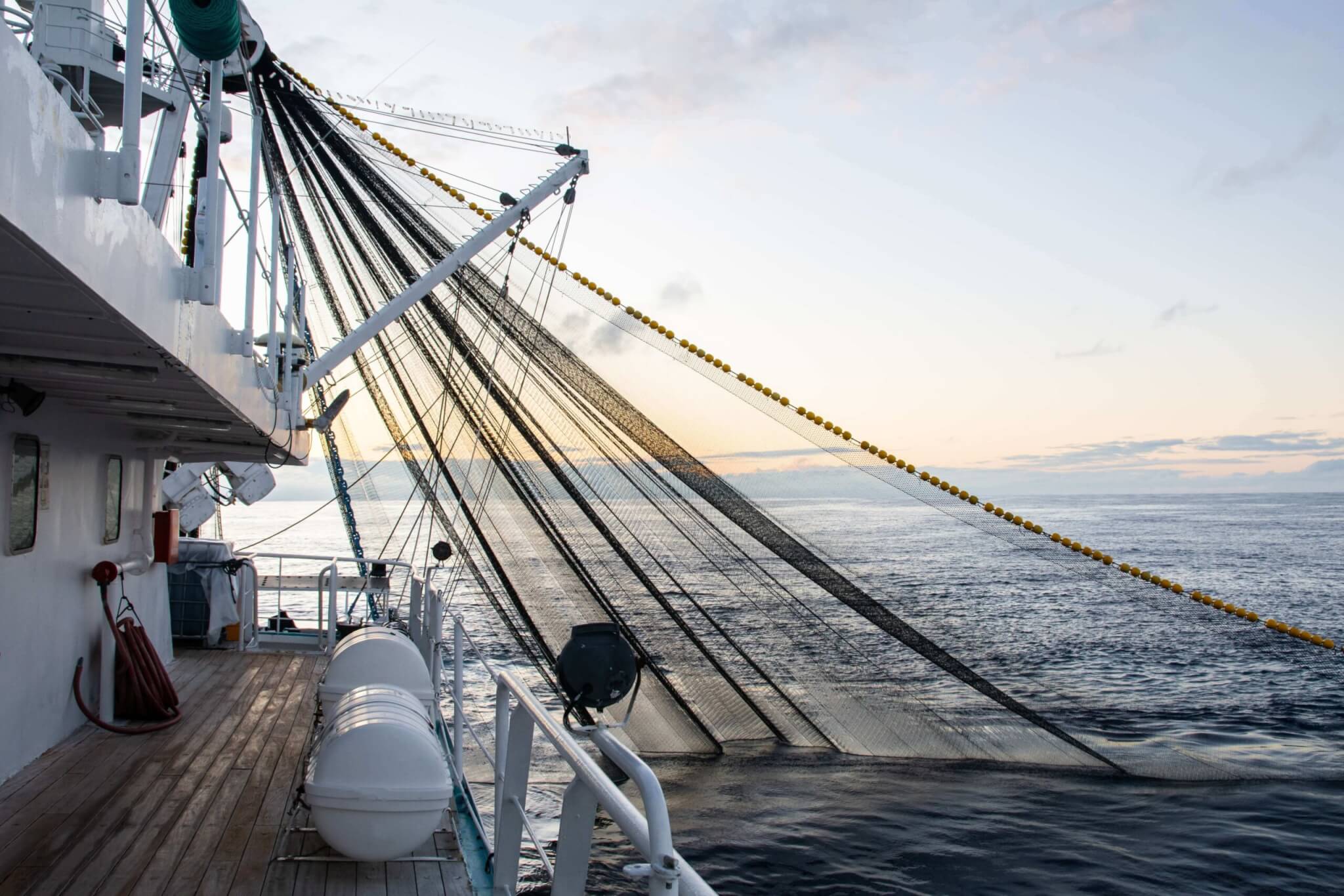Driving Change on the Front Lines of Indonesia’s Tuna Fisheries
Posted by Claire van der Geest
April 1, 2015
I recently embarked on an important journey to Indonesia for some tuna sustainability fieldwork with my fellow ISSF consultants Jesse Marsh and Dave Itano. Our trip was associated with three separate, but closely interlinked, ISSF programs – programs conducted in partnership with a number of other NGOs:
- the implementation of pilots to trial the ISSF ProActive Vessel Register (PVR) platform for small-scale vessels, particularly on handline and pole and line boats as well as small longliners and very small purse seiners;
- the development of a Pole and Line Skippers Guidebook to add to the existing ISSF Purse Seine and Longline Skippers’ Guides; and
- engagement on issues pertaining to RFMOs – both the Indian Ocean Tuna Commission (IOTC) and the Western and Central Pacific Fisheries Commission (WCPFC).
Situated at the intersection of the Indian and Pacific Oceans, Indonesia is a growing player in the global seafood marketplace. Understanding the catch and associated effort from Indonesian tuna fishing vessels and identifying and implementing effective management practices is therefore critical for ensuring sustainable tuna resources in both the Indian and Pacific oceans. Each of the above programs seeks to advance the understanding of Indonesia’s tuna fisheries and provide tools to assist with their management.
Addressing the many challenges associated with Indonesia’s tuna fisheries will directly impact the work of both the IOTC and the WCPFC. The paucity of reliable catch and effort data for Indonesian flagged fishing vessels, particularly small-scale and artisanal fishing fleets, where skippers may not have adequate resources and capacity to complete logbook entries – even if such a requirement were implemented by the Government – is one example. Or consider the question of understanding Indonesia’s tuna fishing fleet and its capacity when vessels are licensed at one of three different levels of government, according to the vessels size. The result is a lack of a single, consolidated list of authorised vessels fishing for tuna in Indonesia. Finally, let’s not forget about the simple fact of Indonesia’s geography. The Indonesian archipelago comprises an estimated 17,500 islands in an area of 5.8 million square kilometres, of which 3.1 million square kilometres are territorial sea. As a developing country, weak infrastructure, like roads, electricity and access to the internet can hamper efforts to implement effective management systems.
Stakeholder Collaboration
During our visit, the importance of stakeholder collaboration and partnerships to overcome such challenges became increasingly evident; that it is perhaps nowhere more crucial than in Indonesia – and considering the country’s diverse and varied qualities, perhaps nowhere more a natural fit. Indonesia is rich in cultural and religious diversity. It also records very high biodiversity, particularly coral reef biodiversity and terrestrial diversity. The ‘Wallace Line’ that marks the mixing of northern and southern hemisphere species, runs directly through the archipelago. The ability to bridge divides and work toward a common goal has been and will always be fundamental in Indonesia. This capacity for partnerships is especially important when discussing highly migratory tuna resources. As such, there are a plethora of NGOs working in Indonesia to improve the overall fisheries management systems. Of course, without political will, the best-laid plans will still fail. The inaugural speech of the newly elected Indonesian President Widodo highlighting the importance of the fisheries resources and the Fisheries Minister, Ibu Susi Pudjiastuti, were both top of mind in all our discussions in Indonesia. Pudjiastuti’s recent efforts have included the apprehension of IUU boats, a prohibition on transhipment and tasking the Ministry of Marine Affairs and Fisheries with compiling a single list of all fishing vessels authorized to fish in Indonesia. Continual improvement and strengthening of fisheries management measures, including actions to combat IUU fishing, form part of ISSF strategic priorities. Considering this focus and our current collaboration piloting the PVR on small-scale vessels, actions to develop a single list of authorised vessels was music to our ears.
 ISSF + Partners Projects
ISSF + Partners Projects
ISSF understands that success in Indonesia is not possible without on-the-ground partners that can affect real change for the nation’s tuna fisheries. That’s why, with support from the Gordon and Betty Moore Foundation, we’re working with the International Pole and Line Foundation, the Asosiasi Perikanan Pole and Line dan Hand Line Indonesia (AP2HI) and Masyarakat dan Perikanan, Indonesia (MDPI), to develop an online vessel register. The objective of this database is multi-fold: to collect and compile vessel data relevant to the Ministry; to assist vessels in meeting RFMO rules; and to provide traceability through the supply chain. The project also aims to enable the vessels to be listed on ISSF’s PVR, which, given the increasing recognition of the PVR in global retailer purchasing guidelines, can be an essential market incentive for Indonesian caught tuna.
Importantly, this program centres on ‘small-scale’ vessels. What is small-scale? Like the tuna RFMOs, ISSF does not quantitatively define small-scale because it can mean very different things depending on the specific situation. Rather, ISSF recognises the significant differences between larger industrial vessels and small-scale vessels when it come to operation and catch and the challenges of management, enforcement and monitoring. All fisheries need to have effective management and enforcement, and there are unique challenges to managing potentially thousands of vessels for even the most developed and organised fisheries ministry. In general, though, when we talk about small scale, we are talking about vessels of less than 100GT, and particularly vessels less than 30GT. In the future, there will be a need for all partners to collaborate to understand the catch and effort from the smallest of tuna vessels – those that are less than 5GT and often only 1GT. The development of the Skippers Guidebook for Pole and Line vessels will facilitate the use of best practices by the skippers and crews of these vessels.
We are in the early stages of these important programs, and they represent exciting opportunities for ISSF and our partners to influence change in one of the world’s most important regions for tuna resources. As we begin to work with Indonesia to fill in the data holes regarding their tuna fisheries, we are one step closer to this essential goal. When coupled with programs that collect species-specific size data, closing data gaps helps to reduce uncertainty in the stock assessment models undertaken at the RFMO level will go a long way toward sustainably managing the region’s tuna fisheries well into the future. We are confident that the high level of collaboration and cooperation among an alliance of NGO partners, industry and the government will make us all successful.
photos courtesy of and copyright Claire van der Geest


